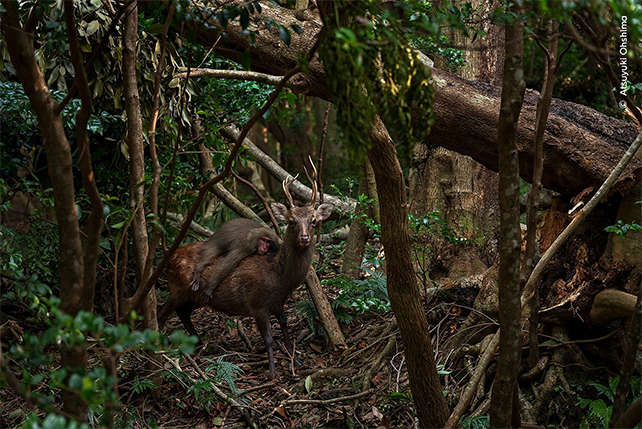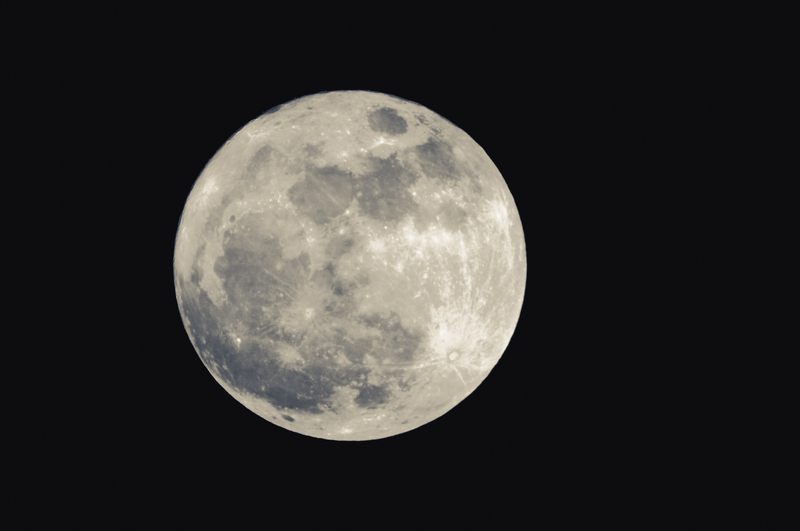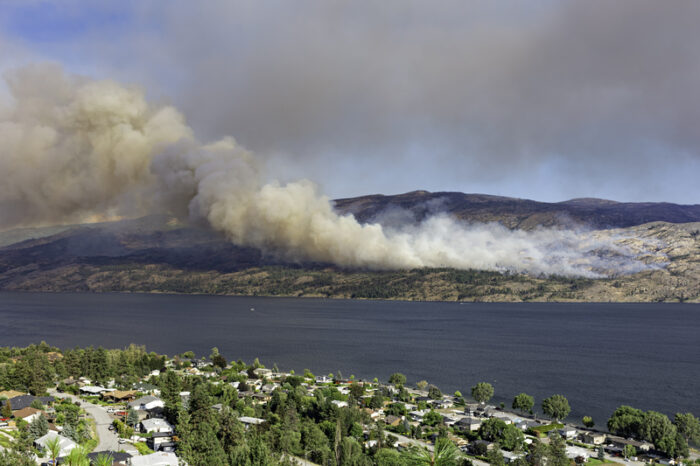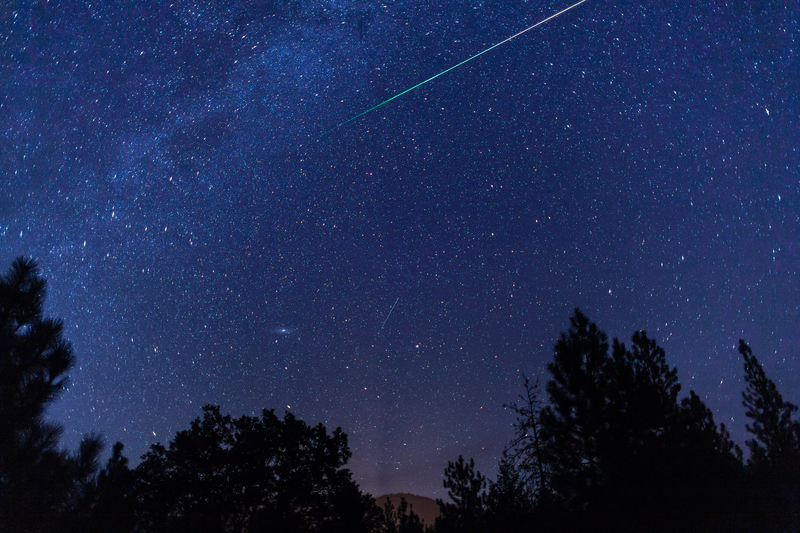It may only be July, but in Canada, the summer of 2023 will be remembered for the extreme weather that it brought.
Especially in British Columbia, Alberta, Quebec, and Nova Scotia, record-setting wildfires have been raging for months. The effects of these fires have been felt across almost the entire continent. Smoke has traveled from Yellowknife in the Northwest Territories all the way down to New York City and Washington, D.C.
And now, this past weekend, Nova Scotia has been covered by flooding that is the worst in 50 years. The province has declared a state of emergency to address the disaster.
This drone footage shows some of the effects of this once-in-a-century rain.
Drone video footage showed widespread flooding in Nova Scotia after its worst rains in half a century https://t.co/yu007TsF9c pic.twitter.com/UXS3v4gCgw
— Reuters (@Reuters) July 23, 2023
Three months worth of rain
The flooding has been driven by extreme rainfall. In many places, the amount of rain was over 250 mm. The last time Nova Scotia had rain this extreme was in August 1971 after Hurricane Beth.
The normal average for an entire month in the province is around 90 mm. So much of Nova Scotia got three months worth of rain in a single day.
As a result, countless neighbourhood streets were flooded waist-deep and more. Rivers overflowed and raged across the landscape. Parking lots and streets were so flooded that cars had to be abandoned.
And in many cases, the waters were so overwhelming that bridges and roads were washed out and destroyed.
This all means that even after the waters recede, it will take a long time to rebuild.
How heat drives extreme weather
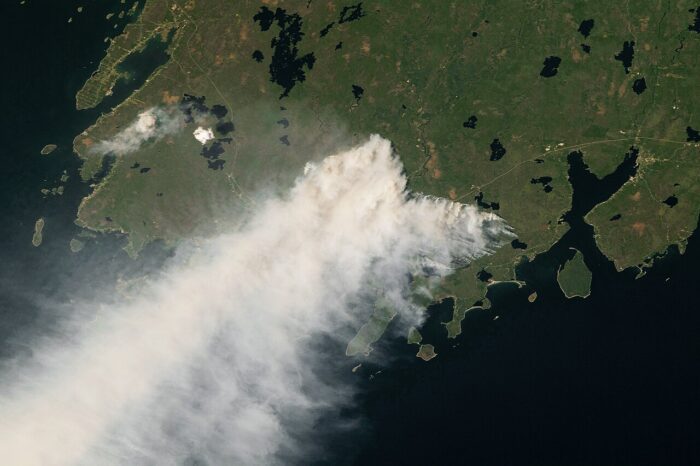
A satellite image of the wildfires in southern Nova Scotia on May 29. (Wikimedia Commons)
Experts observing this event are reminding us that this flooding, the wildfires, and the rising temperatures are all tied together. Currently, the planet is in the middle of the hottest year on modern record.
In an interview with Global News, Kent Moore, an atmospheric physics professor at the University of Toronto said, "Scientists have predicted for many, many years that as we continue to pump greenhouse gases into the atmosphere, we’re going to see a warming, and that will probably lead to more extreme conditions."
What can be confusing is how we can get both extremely dry weather and extremely wet weather in the same summer. But the common connection is the high heat.
At first, the high heat dried out forests. This set them up to be vulnerable to catching fire and burning with record intensity.
But this high heat also increases the ability of the atmosphere to hold water vapour. In the case of the Nova Scotia, which is right near the ocean, the hot skies absorbed so much that when the rain finally came, they unleashed an incredible amount of water.
This doesn't mean that every part of Canada is going to experience flooding. But according to experts, it does mean that we're all likely to go through more extreme weather of some type in the coming years.
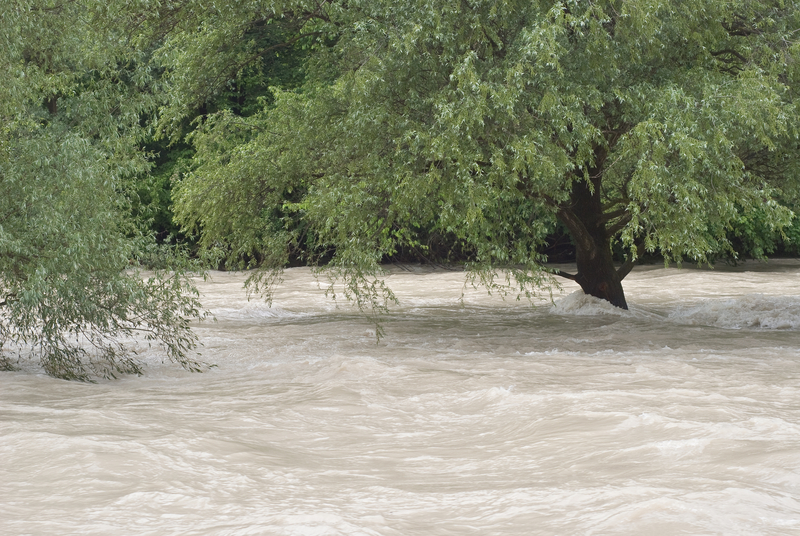 Extreme flooding has come to many parts of the world already this summer. (ID
31433170
© Steven Jones
|
Dreamstime.com
)
Extreme flooding has come to many parts of the world already this summer. (ID
31433170
© Steven Jones
|
Dreamstime.com
)
